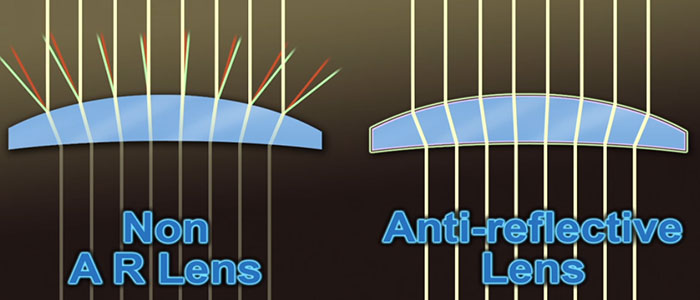
So you’ve had your eyes examined and picked out your new frames, and now you have an array of lens options from which to choose. One important option to consider is investing in an Anti-reflective coating, also known as AR coating. This feature has multiple advantages that can benefit almost anyone who wears glasses.
Today’s modern lens materials have a higher refraction index than previous materials did, which means they can produce a stronger prescription with a thinner and lighter piece of lens. The trade-off is that they are more prone to reflection and glare. AR coating will cut the glare, and also some formulations will even strengthen and harden the newer plastic materials.
If you drive at night, you probably have noticed that the headlights of the other cars make it hard to see. An Anti-reflective coating reduces the amount of glare you encounter, enabling you to be a safer night-driver.
AR coatings also benefit computer users. Tests have shown that glare from computer monitors can cause extra vision stress, and add pressure on the eyes. But with Anti-reflective lenses, computer users can work at their monitors with less irritation to their eyes.
Another benefit of AR coatings is that they actually let in more light. You will have better overall vision, with higher contrast and clarity—especially in dim settings.
And let’s not forget to point out that with AR-coated lenses your glasses will look better on you and in photos. Without the glare on the front of your glasses, people will be able to see your eyes more clearly—which is always a good thing!
Talk with your eye care professional to determine which AR lens coatings are best for your lifestyle and your lenses.

